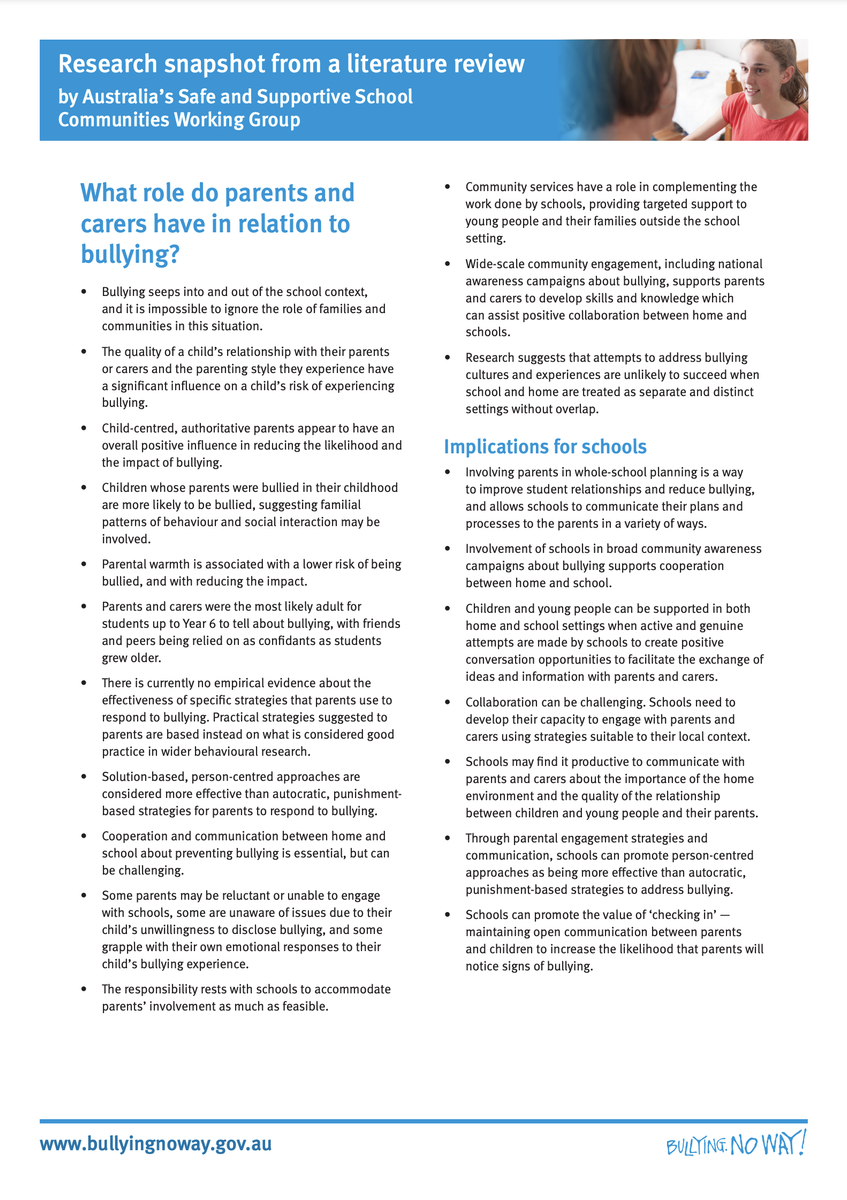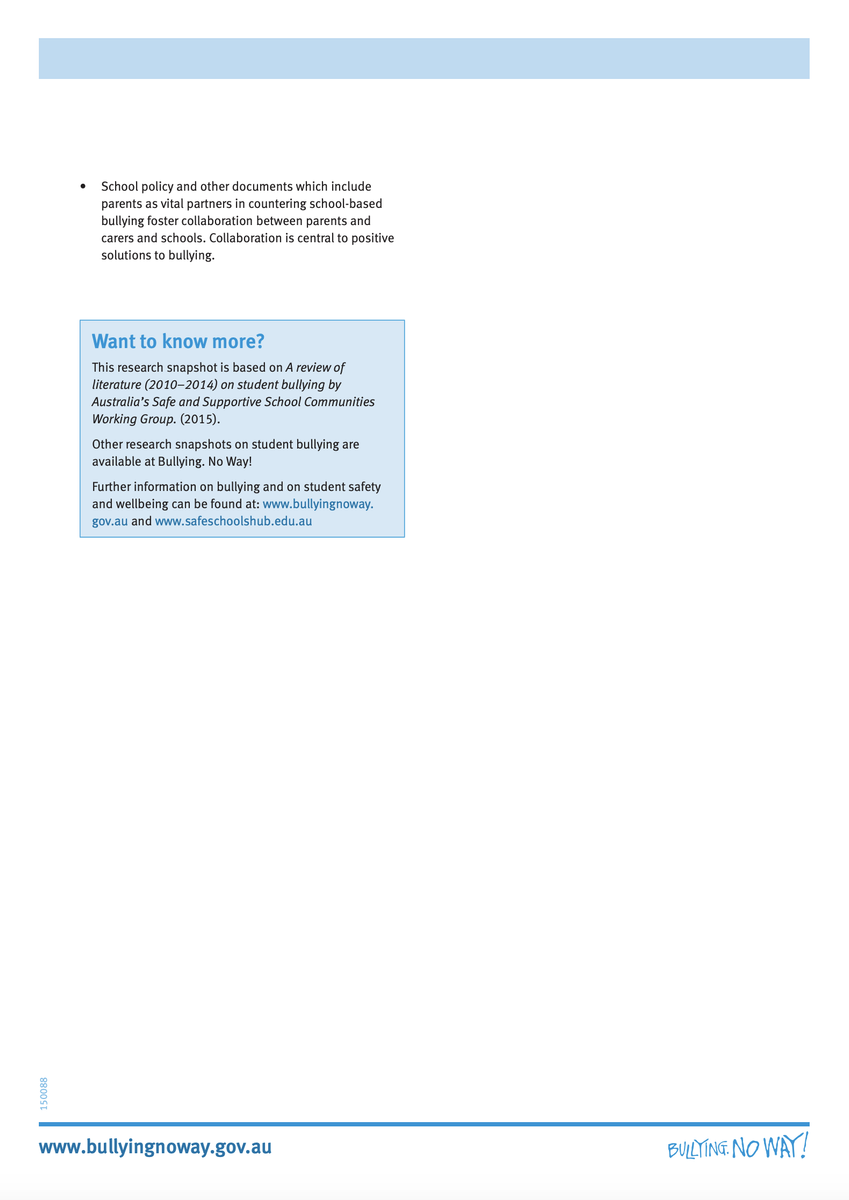Anti-bullying

Anti-bullying
Bullying can be a real and serious issue in our schools. It can happen to anyone, anywhere, anytime, and can have devastating consequences.
We've collated some helpful topics around bullying from:
Signs of bullying
Each student who has been bullied or is bullying others will respond and act differently. A student's behaviours and moods can change for a variety of reasons.
Teachers and parents/carers need to be alert to the possibility that the change in behaviours and moods is related to bullying.
Talk with the child about school if you are concerned and ask general questions about how things are going.
FOR PARENTS AND CARERS
Signs a parent or carer might notice include if their child:
- doesn't want to go to school or participate in school activities
- changes their method or route to school or is frightened of walking to school
- drops in academic performance
- changes in sleep patterns
- changes in eating patterns
- has frequent tears, anger, mood swings
- takes money from home
- has unexplained bruises, cuts, scratches
- loses or brings home damaged belongings or clothes
- arrives home hungry.
The signs of possible bullying online can be the same as signs of other bullying, but include other behaviours with phones and computers, for example:
- being hesitant about going online
- seeming nervous when an instant message, text message or email appears
- being visibly upset after using the computer or mobile phone, or suddenly avoiding it
- closes the screen, or hides the mobile phone when others enter the room
- spending unusually long hours online in a more tense, pensive tone
- receiving suspicious phone calls, emails or packages.
More information is available on the Bullying No Way website.


